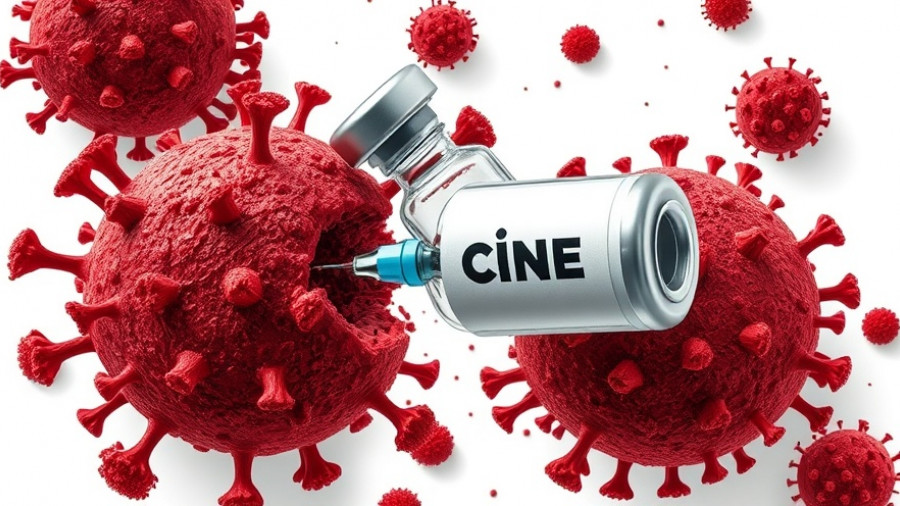
Breakthrough Findings: How mRNA Vaccines Influence Cancer Treatment
In an exciting advancement in cancer treatment, researchers from the University of Florida and the MD Anderson Cancer Center have discovered that administering COVID-19 mRNA vaccines within 100 days of starting immunotherapy can significantly improve survival rates in patients with advanced lung and skin cancers. A remarkable study published in Nature indicated that those who received the vaccine alongside immunotherapy nearly doubled their median survival rates - from approximately 20.6 months to 37.3 months for lung cancer patients. Such findings not only offer hope to those battling aggressive cancers but also set the stage for potentially developing a universal cancer vaccine.
The Power of mRNA: More Than Just a COVID Vaccine
Traditionally viewed as a tool to combat infectious diseases, messenger RNA (mRNA) technology is proving to have a profound impact on oncology. The study highlights that the mRNA vaccines can enhance the immune system's response against tumors without being targeted to specific cancer proteins. Researchers believe that this 'nonspecific' approach could awaken and boost a person's immune defenses much like how it reacts to viral infections. As Dr. Elias Sayour, a co-senior author of the study, aptly remarked, this could “revolutionize the entire field of oncologic care.”
Potential Implications for Future Cancer Treatments
The implications of this research extend beyond just boosting survival rates. They suggest a transformative direction in cancer therapy, emphasizing the possibility of a universal vaccine that could be made readily available to patients globally. Coupled with existing immunotherapies, such as checkpoint inhibitors, mRNA vaccines could potentially reset a patient’s immune response to fight their disease more effectively. Dr. Adam Grippin, the lead researcher, points out that this could serve as a groundbreaking step towards off-the-shelf solutions in combating cancer.
Challenges Ahead: Validation and Research Continuation
Despite the promising results, researchers are aware that these findings are preliminary. To verify the efficacy and safety of this approach, a randomized clinical trial is on the horizon. This upcoming study emphasizes the need for thorough investigation into how mRNA vaccines can be strategically leveraged alongside cancer treatments, possibly leading to more effective therapies in the future.
Conclusion: A New Horizon in Oncology
The confluence of mRNA vaccine technology and cancer treatment heralds a new era for oncology. The potential for enhanced survival rates, combined with accessible solutions like mRNA, may reshape how we approach cancer therapy. As the medical community continues to scrutinize these findings, patients and their families can maintain a glimmer of hope for more effective treatment options in the future.
 Add Row
Add Row  Add
Add 




Write A Comment